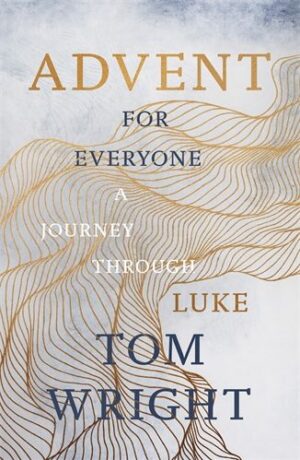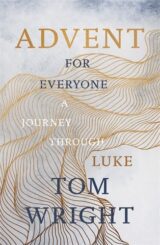John the Baptist Confronts the Crowds: Luke 3.7–18
‘You brood of vipers,’ John used to say to the crowds who came out to be baptized by him. ‘Who told you to escape from the coming anger? 8You’d better prove your repentance by bearing the proper fruit! Don’t start saying to yourselves, “We have Abraham as our father”; let me tell you, God can raise up children for Abraham from these stones! 9The axe is already standing by the roots of the tree – so every tree that doesn’t produce good fruit will be cut down and thrown into the fire.’
What shall we do?’ asked the crowds
‘Anyone who has two cloaks’, replied John, ‘should give one to someone who hasn’t got one. The same applies to anyone who has plenty of food.’
Some toll-collectors came to be baptized. ‘Teacher,’ they said, ‘what should we do?’
Don’t collect more than what is laid down,’ he replied
Some soldiers, too, asked John, ‘What about us? What should we do?
‘No extortion,’ replied John, ‘and no blackmail. Be content with your wages.’
The people were very excited, and everyone was questioning in their hearts whether John might not be the Messiah. 16To all of them, John responded: ‘I am baptizing you with water. But someone is coming who is stronger than I am. I don’t deserve to untie his sandal-strap. He will baptize you with the holy spirit and with fire. 17He will have his winnowing-fork to hand, ready to sort out the mess on his threshing floor and gather the corn into his barn. Any rubbish he will burn with a fire that will never go out.’
John urged his news on the people with many other words.
Commentary
A cartoon shows a sceptic shouting up to the heavens, ‘God! If you’re up there, tell us what we should do!’
Back comes a voice: ‘Feed the hungry, house the home- less, establish justice.’
The sceptic looks alarmed. ‘Just testing,’ he says.
‘Me too,’ replies the voice.
John the Baptist doesn’t seem to have wasted time and breath going into the details of ethical debate. Not for him the learned discussions of particular cases, the small details of law that take time and energy away from actually doing anything about the way the world is – and the way one’s own life is. Of course, one might grumble that John hadn’t said anything to the people who didn’t have two cloaks or too much food, but that wasn’t the point. If people were coming for baptism, they were committing themselves to be God’s Israel, the light of the world, the people in whom God’s justice would be seen by all. There was no time, and no need, for lengthy discussions such as we find in the writings of the rabbis. What they needed were rules of thumb. ‘Two cloaks? Give one away. Too much food? Same applies.’ Nobody could miss the point. Like the great Old Testament prophets, John could see the rich getting richer and the poor poorer. A start had to be made to get things back on track.
The special cases are doubly interesting. Nobody likes paying taxes at the best of times, and some of the tolls were levied simply at the whim of local rulers, shamelessly lining their pockets and giving the collectors tacit licence to do the same. John doesn’t say they should stop working for the hated rulers; he’s not going to recommend unemployment. But they must earn their living and no more. No getting rich at the expense of their own people.
The soldiers are probably from Herod’s own troops; they are unlikely to be Roman soldiers, coming to a Jewish prophet for a ritual that only made sense within Israel’s national story. Like the toll-collectors, they aren’t told to abandon their careers, but they must avoid abusing their position, as was evidently commonplace. No thuggery, using their brute force to rob people with impunity. ‘Be content with your wages’ isn’t a way of tell- ing them not to campaign for higher wages from their employers; the steady creeping inflation that modern Western economies experience was virtually unknown in the first-century Roman world, and annual pay rises would not have been an issue. Rather, the soldiers are not to use a complaint about low pay as an excuse to rob and pillage (‘Herod doesn’t pay us enough, so we have no choice’).
Simple, clear commands; but if they were obeyed they would demonstrate that people meant business. None of these things happens by chance; they only occur when people have genuinely repented of the small-scale injustices which turn a society sour. But there is more. John is not just a moral reformer; he is the herald of the Messiah.
Jesus himself would give more detailed teaching than John. But he never retreated from the things John was saying here. He too was just as committed as John to God’s justice working its way out into the world in the behaviour of his followers. For him, God’s justice would be displayed not through riches and royalty of worldly style, but through the love and justice that would finally be combined on the cross.
For Reflection or Discussion
Can you think of examples of injustices – whether large- scale or small-scale – that have been reported in the news recently?
What do you imagine John the Baptist would say about them were he alive today?


